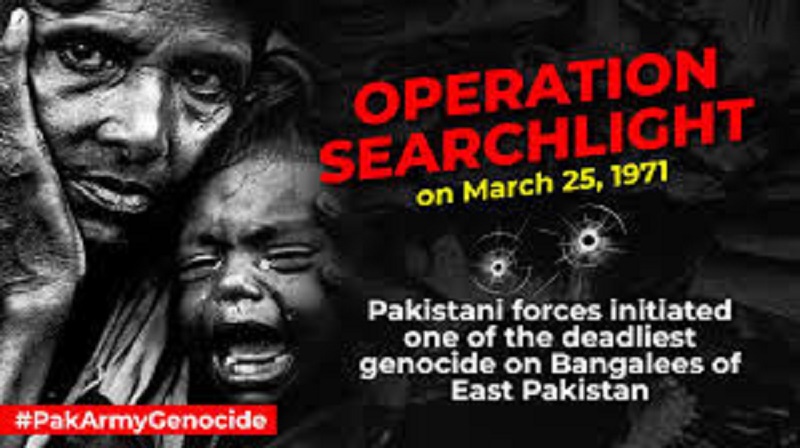At Kolkata Press Club on 16 April 1971, two nondescript Bangladesh officials kept journalists waiting for hours. Finally, the officials arrived in the evening and apologised for being late.
Abdul Mannan, an MNA (later the first home minister of Bangladesh in 1972) remained silent, while Barrister Rahmat Ali, without waiting for an introduction, told the crowded journalists that they were requested, including the foreign press representatives, to return to the press club for an important announcement the following morning.
The following morning, Kolkata Press Club was overcrowded with local and foreign journalists accompanied by a battery of camerapersons and press photographers.
Ali announced: “Gentlemen, on behalf of the government of Bangladesh, I invite you to our country,” which jolted the journalists as the Liberation War history unfolded.
The rally of cars carrying journalists did not know where they were going, whom they would meet, and what they would witness. Everybody was worried about what kind of dispatch they would send to their newsroom. When the vehicles stopped at a mango orchard in Meherpur, inside Bangladesh, the Kolkata journalists quickly dubbed the place as Mujibnagar.
Of course, India and the entire world were taken by surprise when Bangladesh formally announced the “Proclamation of Bangladesh Independence” and the formation of a government-in-exile to coordinate the Liberation War.
What surprised many, was that among the Kolkata media circle, none leaked the story of the secret endeavour of the Mujibnagar episode. The thoughtful journalists maintained secrecy to avoid the enemies being alerted by a single line published in an Indian newspaper.
Journalist SukharanjanSengupta saw a vehicle with a diplomatic number plate entering the porch on March 22.
The curious journalist rushed towards the office of Chief Secretary NirmalSengupta and waited for the person to come out.
The person was nobody else but the deputy high commissioner posted in Dhaka during the crucial period. Time was ticking for Bangabandhu Sheikh Mujibur Rahman as New Delhi was impatiently waiting to see what emerges from the crucial negotiation in Dhaka with the military junta.
Fortunately, the journalist knew the diplomat and quickly asked whether the negotiation to resolve the political crisis would go in the favour of Sheikh Mujib or will there be a bloodbath.
The diplomat was in a rush. He frowned and said the second one and was then escorted to the Kolkata airport and to New Delhi to hold a confidential debriefing on the Bangladesh crisis with Indian Prime Minister Indira Gandhi.
On 23 March, the Republic Day of Pakistan, the “Joy Bangla” flag was fluttered all over the country, except for the military cantonments and a few government offices in Dhaka.
On 25 March, Bangabandhu was still negotiating with the advisors of Pakistan’s military dictator General Yahya Khan to avoid a bloodbath in the country.
However, near midnight on March 25, the Pakistan army launched the genocidal campaign “Operation Searchlight,” leaving Bangladesh no choice but to go to war.
Saleem Samad is an award-winning independent journalist based in Bangladesh. A media rights defender with the Reporters Without Borders (@RSF_inter). Recipient of Ashoka Fellowship and Hellman-Hammett Award. He could be reached at saleemsamad@hotmail.com; Twitter (X): @saleemsamad















